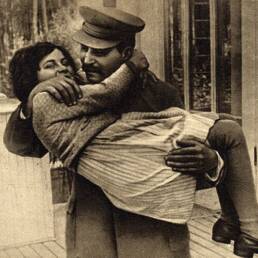We all know that Netaji cultivated a close relationship with Berlin in order to free India from the clutches of British power. However, the Nazis also saw India as a target for their propaganda machine.
In 1939 a Bombay Journal Salar-e-Hind wrote this in its June Issue “The politics of National Socialism should not be banned because of its following in any foreign nation. Any patriot should be proud to be a National Socialist”.
Though the writing might not seem completely outrageous, Saler-e-Hind, publiqshed in three languages, English, Gujarati, and Persian, was an extended arm of the propaganda machine running out of Nazi Germany on the eve of World War II.
Saif Azad, the proprietor of Salar-e-Hind was an Iranian who had lived in Germany for 14 years and saw first-hand the internal turmoil and the rise of Hitler and his National Socialist party. Saif became the perfect pawn for Goebbels who wanted to spread the Nazi message far and wide.
Before the Bombay Journal, Saif had run the Nazi propaganda machine in Iran through the Iran Bastan, a local paper in Tehran, but it was banned by the Iranian Government. Saif then moved to Bombay around 1938 and started Salar-e-Hind.
Salar-e-Hind regularly released its issues, praising the Nazi party through veiled references and encouraging Indians to join the cause. It also promoted Anti-Semitism, accusing Jews of being law-breakers and communists.
Saler-e-Hind was however not the only one running the Nazi Propaganda. There were known sympathizers among Hindu and Muslim political outfits who often at the behest of their masters in Germany used religious sentiments to draw people toward their support.
At the Aligarh Muslim University, the German wife of a professor was a known Nazi sympathizer. She ran a paper named the Spirit of the Times, trying to draw support from the Muslim community by showing the similarities between Nazi ideals and the tenets of Islam.
In a small district in rural Karnataka in 1939, a newspaper named the ‘Karnataka Bandhu’ ran a story in its July 12 issue stating among other things that ‘Every Nazi is the abode of modesty and courtesy’ and that Germany does not at all want war.
There were other mediums used like the Radio. On 5 August 1939, the Berlin short wave station broadcasted a musical program titled Moonlight on the Taj Mahal. The show however had very little or anything to do with the Taj Mahal.
Some however were concerned at the growing activities of these Nazi sympathizers. Two very prominent Bombay newspapers at the time, the Bombay Sentinel and the Bombay Chronicle helped the British India Government in fighting the Nazi menace.
The Bombay Sentinel was at the time headed by its founder Benjamin Guy Horniman. Horniman was a renowned journalist at the time and had earlier worked for the Bombay Chronicle. In 1919 it was Horniman who broke censorship protocol and exposed the Jallianwala Bagh Massacre.
Working for the Bombay Chronicle at the time was a young journalist named Khwaja Ahmad Abbas who was leading the fight against the Nazi Propagandists. Abbas who would go on to be successful as a film director was a fiery scribe who never minced his words.
In one article Abbas writes ‘Perhaps Hitler’s pseudo-mystical justification of force appealed to some of the sensitive Bengali patriots smarting under the indignity of foreign domination.’ He also noted that the use of the Swastika led to the Nazi affinity with Hindu Political outfits.
Abbas also pointed out that all three Axis powers carried out propaganda in India in some way. In Bombay, even an Anti-Nazi league was formed which operated out of Minto House in Byculla. It provided the government with useful info from time to time.
The government’s response was initially lukewarm but it was able to have some of these publications banned and due to language barriers and the sheer size of the country, Nazi Propaganda remained limited to the major cities, eventually fading away.
Sources: Eugene J. D’souza, Social Scientist, May – Jun. 2000, Vol. 28, No. 5/6 (May – Jun. 2000), pp. 77-90, https://www.jstor.org/stable/3518181; Benjamin Zachariah, Nazi-Hunting and Intelligence-Gathering in India on the Eve of the Second World War, Karl Jaspers Centre for Advanced Transcultural Studies Heidelberg University Germany




